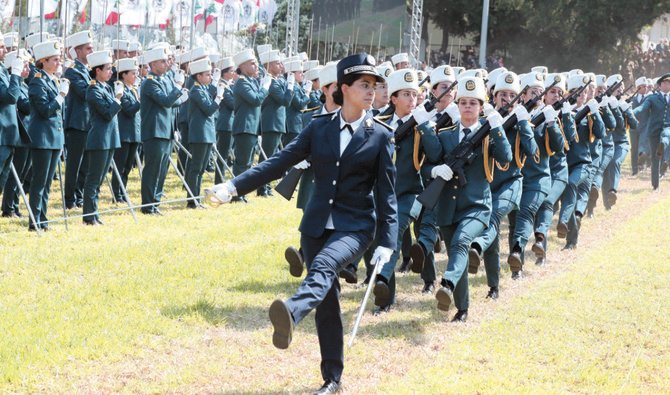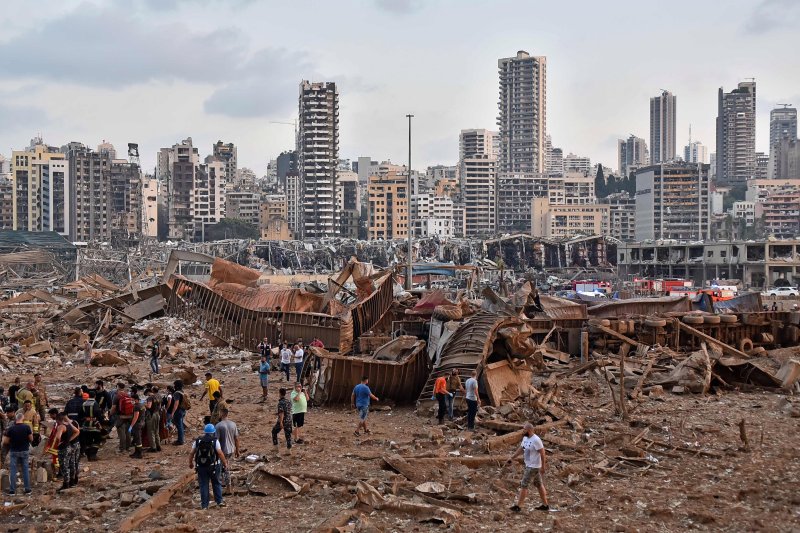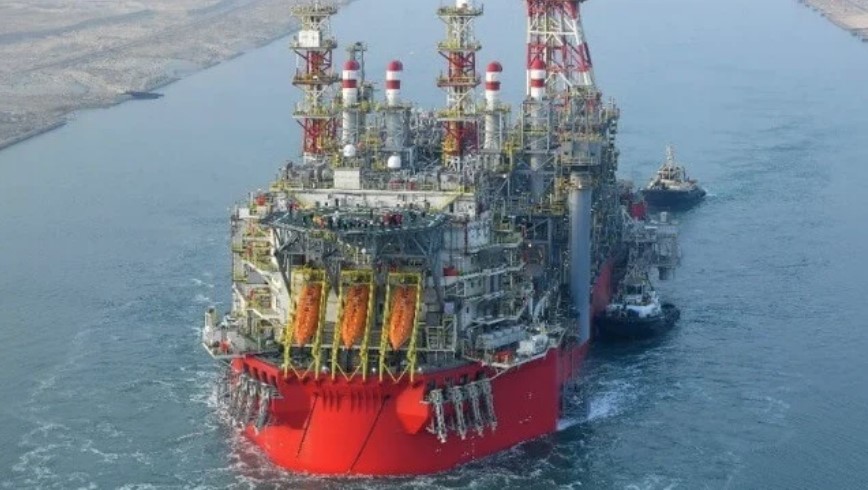
By Najia Houssari -- BEIRUT: The celebration of the 77th Lebanese Army Day on Monday witnessed over 40 female officers graduating from the Lebanese Army Military Academy. Female officer Lt. Angie Khoury was the top cadet in this year’s graduating class. She read out the oath and all graduates repeated it after her. The gender split reflects “the progress of Lebanese society and the change in the stereotypical picture of women,” said the National Commission for Lebanese Women in a statement. “It also shows that the Lebanese Army appreciates women’s capabilities and qualifications, and opens the door for them to reach decision-making positions in the fields of security and defense,” the commission added.
Women’s access to senior positions in state security is one of the envisaged objectives in the national plan to implement the UN Security Council decision 1325 on women, peace and security. A ministerial decree was issued in 1989 including applicable provisions related to the recruitment and service of Lebanese women in the army, in line with women’s rights to equality, in addition to a defense law that grants all Lebanese the right to volunteer to serve in their country’s military. Over time, women’s roles were no longer limited to administrative work. According to the Lebanese Army’s Orientation Directorate, today “women occupy many positions in combat units and they proved their success in all tasks assigned to them.” The total number of women who graduated from the academy reached 46 out of 121 graduates — 40 from the ground forces, four from the air forces, and two from the maritime forces.

BEIRUT, (Reuters) - The World Bank accused Lebanese politicians of being cruel by asserting that deposits in the country's collapsed banking sector are sacred, saying such slogans "flagrantly contradict the reality" in a report on Wednesday. Lebanon is in the third year of a financial meltdown that has left eight in ten people poor and which the World Bank says is deliberate and may be one of the three worst in modern times. The new report marked the second time this year the World Bank has berated Lebanon's ruling politicians, having accused them in January of "orchestrating" the country's catastrophic economic meltdown through their exploitative grip on resources.
The collapse has frozen depositors out of savings in the paralysed banking system, and led the local currency to lose more than 90% of its value. "Political slogans for the sacrosanct of deposits are hollow and opportunistic; in fact, the constant abuse of this term by politicians is cruel," the World Bank said in a report. "Not only does it flagrantly contradict reality, it prevents solutions to protect most, if not all small and medium depositors, in dollars and in cash," the report said. Lebanese politicians often say depositors' rights must be preserved in any plan to address losses of some $70 billion in the financial system, even as their savings have lost around 80% of their value due to the collapse. "Losses should have been accepted and carried by bank shareholders and large creditors, who have profited greatly over the last 30 years from a very unequal economic model," the World Bank said. "This should have occurred at beginning of the crisis ... to limit the economic and social pain."

by thenationalnews.com -- Almost two years ago, an explosion at Beirut’s port ripped through the Lebanese capital, killing more than 200 people. It was the largest non-nuclear explosion in history. It was caused by a stock of ammonium nitrate – mostly used as a fertiliser – that caught fire. In the aftermath of the explosion, it became clear that failings by senior officials, who should have known about the dangerous, large and poorly stored stockpile, paved the way for the blast. Two years on, the twisted remains of grain silos at the port, which became a symbol of the blast, are still there, as are much of the contents they stored, now rotting. On Sunday, footage emerged online showing clouds of smoke across the port as parts of the facility fell down. They had been on fire for three weeks before their ultimate demise.
Silos at Beirut port begin to crumble after week-long fire. The state of the silos mirrors the wider circumstances of Lebanon today. Severe, sudden shocks might happen from time to time, but the main problem for the country is still a long-recognised and seemingly unstoppable decline. It is the result of corruption, inaction and mismanagement from political elites, as well as destabilising foreign influence. The silos should have been torn down already, let alone rebuilt. Instead, nature is completing a dangerous job that should be the responsibility of the state, which has become ineffective through a total breakdown in governance and an absence of accountability. The content of the silos, hazardous rotting grain, is also symbolic, this time of the critical food crisis facing the country.

BEIRUT, (Reuters) By Timour Azhari - Lebanon's top prosecutor has lifted his seizure order on a ship accused by Ukraine of carrying stolen flour and barley, allowing it to sail after finding "no criminal offence committed", a senior judicial source told Reuters. The ship, the Laodicea, remains unable to sail for the time being due to another seizure order issued by a judge in the northern Lebanese city of Tripoli, where the ship is docked, on Monday, the source said. That seizure order was only valid for 72 hours, the judge who issued it previously told Reuters.
However, the Laodicea cannot immediately leave the port of Tripoli because a judge ordered Monday that it may not sail for 72 hours at the request of Ukrainian authorities. If the judge does not extend the order, the ship could sail in two days, a move likely to anger Ukraine. A Lebanese port official confirmed that the ship is still in Tripoli and will only sail if its gets clearance from the judge of urgent matters by Thursday. The Russian Embassy has told Lebanese media that the Ukrainian claim was “baseless.” The U.S. Treasury Department had sanctioned the Laodicea in 2015 for its affiliation with the Syrian government of President Bashar Assad, an ally of Russia. According to the Ukraine Embassy, the Laodicea is among scores of vessels that Kyiv alleges have transported grain stolen by Russia.
An official at the Ukrainian Embassy in Beirut said he could not immediately comment, and that the embassy would hold a news conference on Wednesday. Ukraine has said that the Syrian-flagged ship was carrying some 10,000 tonnes of flour and barley plundered by Russia from Ukrainian stores following its February invasion of the country. The Russian Embassy in Lebanon has said it had no information on the cargo. Moscow has previously denied stealing Ukrainian grain. An official from the company that owns the cargo previously denied it was stolen and said that the ship would sail to nearby Syria should it be allowed to leave Tripoli. The Laodicea arrived in Lebanon on July 27 and two days later top prosecutor Ghassan Oueidat ordered it seized pending investigations following a protest from the Ukrainian embassy and other Western nations.
Khazen History


Historical Feature:
Churches and Monasteries of the Khazen family

St. Anthony of Padua Church in Ballouneh
Mar Abda Church in Bakaatit Kanaan
Saint Michael Church in Bkaatouta
Saint Therese Church in Qolayaat
Saint Simeon Stylites (مار سمعان العامودي) Church In Ajaltoun
Virgin Mary Church (سيدة المعونات) in Sheilé
Assumption of Mary Church in Ballouneh
1 - The sword of the Maronite Prince
2 - LES KHAZEN CONSULS DE FRANCE
3 - LES MARONITES & LES KHAZEN
4 - LES MAAN & LES KHAZEN
5 - ORIGINE DE LA FAMILLE
Population Movements to Keserwan - The Khazens and The Maans
ما جاء عن الثورة في المقاطعة الكسروانية
ثورة أهالي كسروان على المشايخ الخوازنة وأسبابها
Origins of the "Prince of Maronite" Title
Growing diversity: the Khazin sheiks and the clergy in the first decades of the 18th century
Historical Members:
Barbar Beik El Khazen [English]
Patriach Toubia Kaiss El Khazen(Biography & Life Part1 Part2) (Arabic)
Patriach Youssef Dargham El Khazen (Cont'd)
Cheikh Bishara Jafal El Khazen
Patriarch Youssef Raji El Khazen
The Martyrs Cheikh Philippe & Cheikh Farid El Khazen
Cheikh Nawfal El Khazen (Consul De France)
Cheikh Hossun El Khazen (Consul De France)
Cheikh Abou-Nawfal El Khazen (Consul De France)
Cheikh Francis Abee Nader & his son Yousef
Cheikh Abou-Kanso El Khazen (Consul De France)
Cheikh Abou Nader El Khazen
Cheikh Chafic El Khazen
Cheikh Keserwan El Khazen
Cheikh Serhal El Khazen [English]
Cheikh Rafiq El Khazen [English]
Cheikh Hanna El Khazen
Cheikha Arzi El Khazen
Marie El Khazen